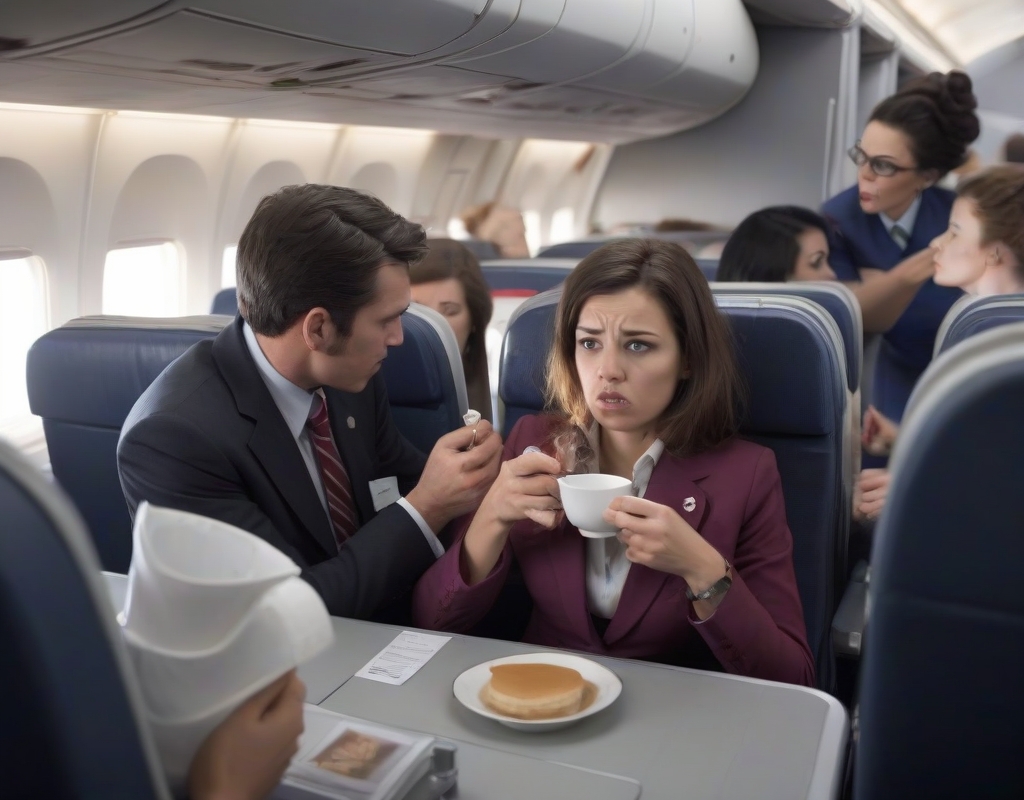In a disturbing sequence of events that has cast a spotlight on the safety measures of airline services, Sean Miller, a 56-year-old from Pennsylvania, has taken legal action against Frontier Airlines following a distressing incident aboard one of their flights. The complaint arose after Miller suffered severe burns due to a scalding cup of hot water that spilled onto his lap during his return flight from Myrtle Beach, South Carolina.
The incident occurred when Miller, seeking a warm beverage, requested a cup of tea. The flight attendant, as detailed in the lawsuit, presented the tea in a careless manner, with the cup brimmed to the top with boiling water and lacking a secure lid. This critical oversight led to the contents spilling onto Miller as the plane experienced minor turbulence, causing immediate and severe physical injuries to him.
Upon the plane’s landing, the severity of Miller’s condition necessitated prompt medical attention. He was swiftly taken by ambulance to a nearby hospital where he was treated for third-degree burns, an indication of the grave nature of his injuries. His condition later required specialized care at a burn center where it was revealed that he also suffered from significant nerve damage and a herniated disc, likely exacerbated by his reaction to the burning sensation while confined in his airplane seat.
The incident did not just inflict physical harm; the emotional and psychological toll on Miller has been profound. He reports experiencing symptoms indicative of post-traumatic stress disorder, an emotional trauma that has deeply infringed upon his quality of life, leaving him with ongoing distress and social embarrassment.
Financially, the repercussions have been just as severe. Miller, driven by medical necessities and the inability to work, has faced mounting financial pressures. In response, his legal representation has sought damages exceeding $150,000, aiming to cover the extensive medical treatments required and compensate for his profound losses.
Frontier Airlines has maintained silence on the matter, adhering to their policy of not commenting on ongoing legal proceedings. Despite efforts by Miller’s attorneys to engage with the airline for the necessary compensation, there has been little to no acknowledgment or support from Frontier in addressing the incurred costs.
The legal battle, housed in the Eastern District of Pennsylvania, squarely confronts Frontier Airlines with allegations of negligence. Miller’s complaint insists that the airline failed in its duty to provide safe service by negligently handling hot beverages. Such a mishap, the lawsuit claims, could have been prevented with more vigilant service protocols.
Beyond just a legal dispute, this case has catalyzed broader discussions on aviation safety and protocols, particularly regarding the in-flight service of hot beverages. Safety experts and legal analysts emphasize that federal regulations mandate airlines to ensure all aspects of passenger service adhere to safety standards that minimize potential risks.
Dr. Laura Harman, an experienced aviation safety expert, points out, “This incident underscores the need for airlines to re-evaluate and enhance their safety procedures regarding the service of hot liquids. The fact that a foreseeable risk such as scalding could manifest into such a severe incident indicates gaps in safety adherence that need addressing.”
Historically, this isn’t the first such instance where hot beverages have posed risks on flights. Other cases have spurred airlines worldwide to implement improved safety measures such as utilizing sleeves, secure lids, and double-cupping techniques to ensure better handling of hot drinks.
Public response to Miller’s plight has been one of empathy and concern, with many sharing their own anecdotes of unsafe service experiences on flights. This collective unease amplifies the pressure on airline industries to fortify their operational procedures to prevent such accidents.
Statistically, injuries from hot substances on flights, as reported by the Association of Flight Attendants in 2018, although not rampant, occur with enough frequency to be a concern. These incidents push the aviation industry to continually evolve and strengthen its safety protocols to safeguard passenger welfare.
In conclusion, Sean Miller’s lawsuit against Frontier Airlines not only highlights a personal tragedy but also serves as a critical call to action for the aviation industry. It underscores the imperative of stringent safety measures and diligent service in the air. As this case progresses, it has the potential to set a precedent for how similar incidents are handled in the future, emphasizing the industry’s accountability and the uncompromising importance of passenger safety.




